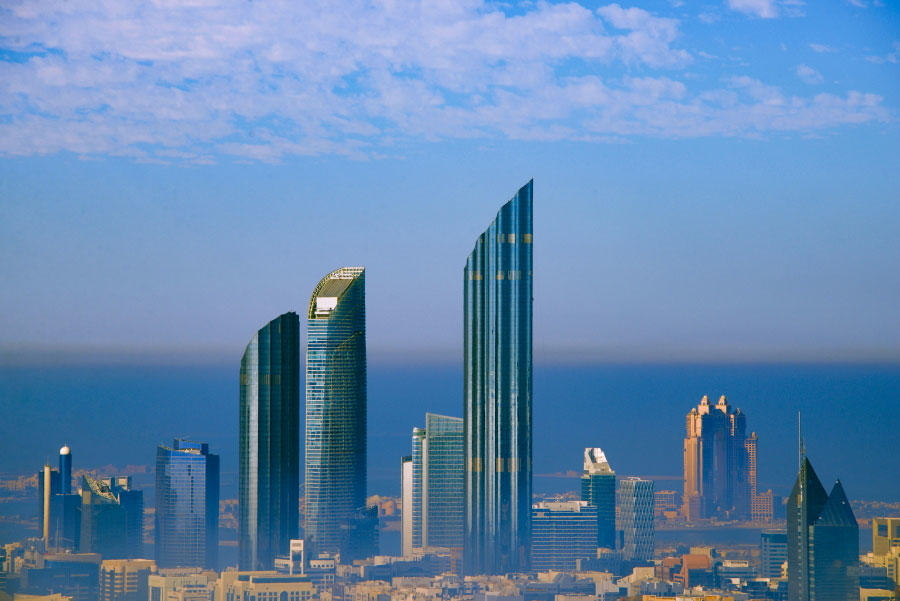Economic growth in the United Arab Emirates is estimated to have accelerated last year, but mostly because of oil.
Excluding the hydrocarbon industry, the Middle East’s second-biggest economy expanded at the slowest pace since at least 2011, according to central bank forecasts released on Sunday. It grew 1.1% in 2020, compared with 1.3% a year ago, according to the lender’s latest quarterly review. Earlier calculations assumed there would be an acceleration to 1.8%.
The actual figures will be announced later this year.
The federation of seven emirates, dominated by oil-rich Abu Dhabi and Dubai, a hub for tourism and logistics, is struggling amid geopolitical tensions over Iran and an oversupplied property market. The coronavirus outbreak in China, the UAE’s biggest trading partner, could put a further strain on the economy.
Abu Dhabi Commercial Bank, the nation’s third-largest lender by market value, reduced its non-oil growth projection for this year by 0.1 percentage points to 2.3% on the back of the virus. Its forecast for the economy as a whole is 0.6%.
The downgrade in the estimate was in large part due to the UAE’s “strong global linkages,” Monica Malik, chief economist at ADCB wrote in a research note.
Expo boost
Last month, the country’s Purchasing Managers’ Index, a snapshot of the non-oil private sector, fell into a contraction zone for the first time in more than a decade.
The overall economy probably grew 2.9% in 2019, according to the central bank’s preliminary figures, up from 1.7% a year earlier. The energy industry expanded 7.6%. According to data compiled by Bloomberg, the UAE’s crude output rose about 3% to 3.1 million barrels a day last year.
In Dubai, the largest city in the UAE, the private sector cut more jobs last month than at any point in at least 10 years. Lenders including Abu Dhabi Islamic Bank and First Abu Dhabi Bank have reduced their workforce and closed branches, prompting the central bank to say it’s “closely” monitoring whether financial institutions are following regulations.
Still, the much-awaited World Expo 2020 starts in Dubai in October and should cause “a rise in short-term employment and higher tourism,” according to Malik.

